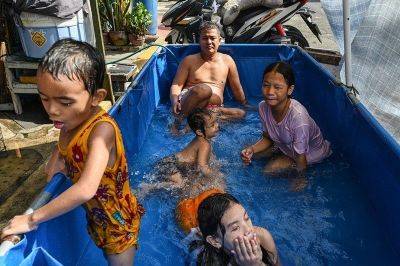All shellfish, alamang unsafe to eat in 6 areas due to red tide
MANILA, Philippines — The Department of Agriculture-Bureau of Fisheries and Aquatic Resources (DA-BAR) and the Department of Health (DOH) warned consumers from eating all types of shellfish and alamang from six specific areas in the country due to toxic red tide.
In their Shellfish Bulletin No. 05 on Friday, the DA-BFAR said that shellfishes collected and tested from the following areas are still positive for red tide or paralytic shellfish poison (PSP) beyond the regulatory limit:
"All types of shellfish and Acetes sp. or alamang gathered from the areas shown above are NOT SAFE for human consumption," said the BFAR in a bulletin on Friday.
"Fish, squids, shrimps, and crabs are SAFE for human consumption provided that they are fresh and washed thoroughly, and internal organs such as gills and intestines are removed before cooking."
Affected shellfish from the abovementioned areas include mussels, oysters, clams, etc.
The BFAR likewise clarified that Llanga Bay in Surigao del Sur is now free from toxic red ride. All other areas are said to be safe from PSP.
The DOH advised the public to look out for the following signs and symptoms of PSP, since it has a rapid onset and can be felt within 12 hours of consuming unsafe shellfish:
"Bring patients with symptoms after eating unsafe shellfish to the nearest emergency room immediately. Prevention is the best: do NOT eat tahong, talaba, halaan, other shellfish, and alamang from areas identified with toxic red tide," said the DOH in a separate statement on Saturday.
"Always read advisories from DA-BFAR and the DOH. All hospitals are directed to prepare for these cases and to report them accordingly."







